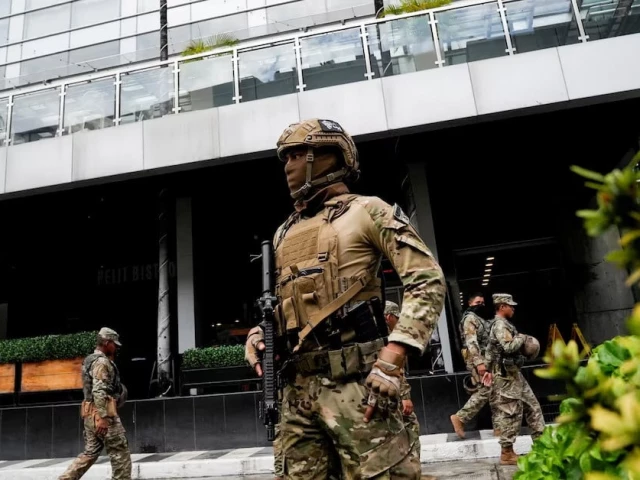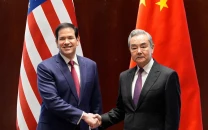Migrants in Panama moved to Darien jungle region
Pakistanis among those deported from US

A group of migrants deported from the US to Panama last week were moved on Tuesday night from a hotel in the capital to the Darien jungle region in the south of the country, a lawyer representing a migrant family told Reuters on Wednesday.
Susana Sabalza, a Panamanian migration lawyer, said the family she represents was transferred to Meteti, a town in the Darien, along with other deported migrants.
La Estrella de Panama, a local daily, reported on Wednesday that 170 of the 299 migrants who had been in the hotel were moved to the Darien. Panama's government did not respond to a request for comment.
The 299 migrants have been staying at a hotel in Panama City under the protection of local authorities and with the financial support of the United States through the UN-related International Organization for Migration and the UN refugee agency, according to the Panamanian government.
The migrants include people from Afghanistan, China, India, Iran, Nepal, Pakistan, Sri Lanka, Turkey, Uzbekistan and Vietnam, according to Panama's president, Jose Raul Mulino, who has agreed with the US to receive non-Panamanian deportees.
The deportation of non-Panamanian migrants to Panama is part of the Trump administration's attempt to ramp up deportations of migrants living in the U.S. illegally. One of the challenges to Trump's plan is that some migrants come from countries that refuse to accept US deportation flights, due to strained diplomatic relations or other reasons.



















COMMENTS
Comments are moderated and generally will be posted if they are on-topic and not abusive.
For more information, please see our Comments FAQ